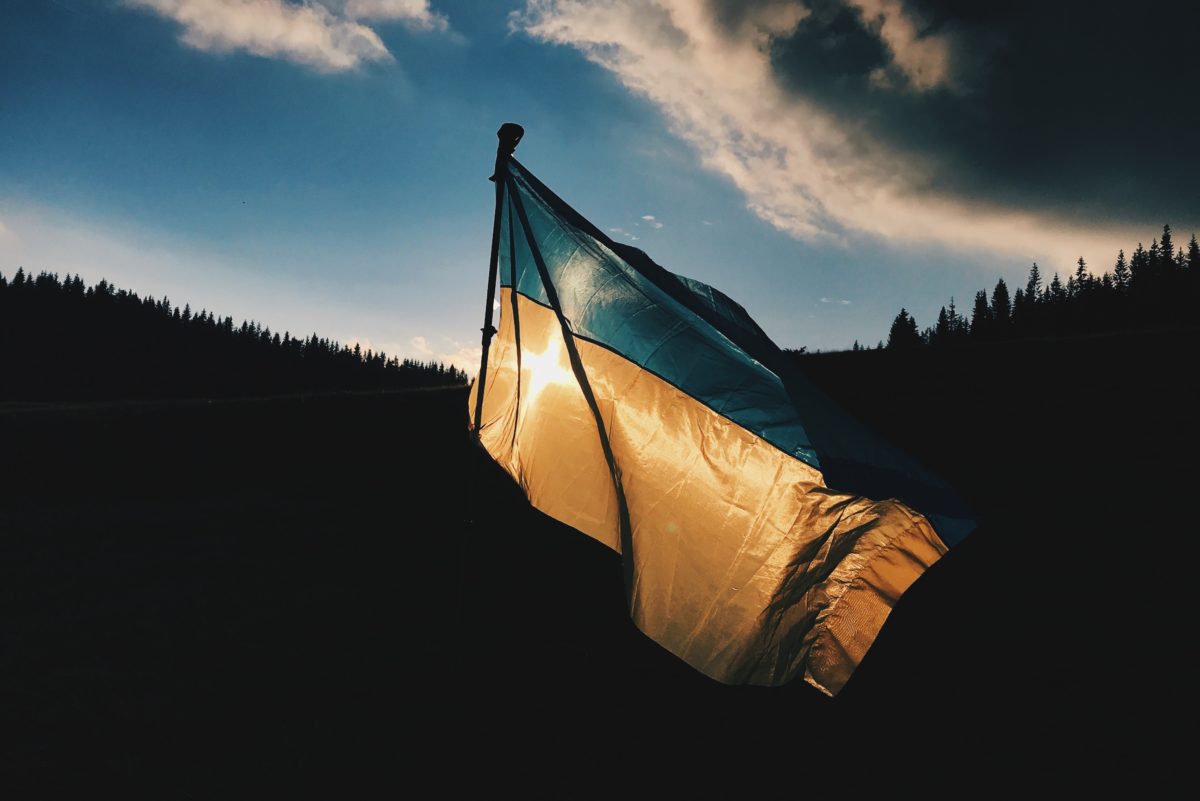Russia’s invasion of Ukraine last week was a sobering reminder of the precarious dynamics of our global society. Most of us will surely sympathize with the heartache and suffering which must now be endured by Ukraine’s people, and by the families of soldiers on both sides of the conflict.
Yet amid the solemn declarations regarding the conflict by Canadian leaders of the past few days, there was a jarring hypocrisy. The suffering of Ukraine and its people, it seems, is far more worthy of Canadian outrage and retaliation than the suffering of other peoples around the world.
Within hours of Russia’s invasion, the Trudeau government had condemned Russia’s “unprovoked actions” as “another clear and further violation of Ukraine’s sovereignty, territorial integrity, and independence.” Compare this to Canada’s reaction to brutal Israeli military action against Palestinians in 2008, 2014, 2018, 2020 and 2021, where Israel is, at most, asked to show “restraint” as it bombs Gaza.
In both these conflicts, Russia and Israel justify their attacks with arguments of self-defence. Yet while Canadian leaders accuse Russia of being in “violation” of its “obligations under international law and the Charter of the United Nations,” these same voices excuse or echo Israel’s justifications of self-defence.
This contrast between Canada’s reaction to Russian aggression toward Ukraine, and Israel’s aggression toward Palestinians is nothing new. In 2014, after Russia annexed Crimea, then foreign affairs minister Chrystia Freeland argued for “the vital international norm” that no country should be allowed to alter its borders by force. Yet UN lawyer Michael Lynk suggested “there is no daylight between the Russian annexation of Crimea, and the [threatened 2020] Israeli annexation of any of the territory it conquered in 1967. For Canada to remain silent […] tells me that Canada is applying different standards to situations that are essentially the same.”
The double-standards go far beyond the simple rhetoric around condemnations and justifications. Within hours of Russia’s invasion of Ukraine last week, the Canadian government had announced a broad new set of sanctions on Russia and its officials. Among other measures, export permits to Russia—importantly affecting aerospace, technology and minerals sectors—would be cancelled. This stands in stark contrast to Canada’s seemingly insatiable appetite for new and upgraded bilateral agreements with Israel, despite the country’s frequent aggressions against its neighbours. Ignoring repeated calls from the UN Security Council and others to modulate trade with Israel until it respects international law, the Trudeau government recently even rechristened the Canada-Israel Free Trade Agreement.
Canada’s new sanctions on Russia—announced mere hours after the invasion—included restrictions on dozens of Russian individuals and entities, including banks, financial elites and their families, and key members of the Russian Security Council. This swiftness of action stands in glaring contrast to Canada’s reaction to serious accusations of war crimes levelled against Israel’s leaders. The evidence of official Israeli wrongdoing is so compelling that the International Criminal Court (ICC) launched an investigation in 2021 into Israeli human rights violations against Palestinians. Yet in an unconscionable move in 2020, the Trudeau government actually tried to get the ICC investigation dismissed.
Canadians might be touched by their government’s offer last Friday to match humanitarian donations to the Red Cross for Ukraine up to $10 million. This aid was announced even before the humanitarian toll on Ukraine’s people is fully known. This was on top of $50 million in Canadian funding to Ukraine for development and humanitarian aid, and $620 million in other Canadian loans to Ukraine. Yet following Israel’s military adventures against Palestinians, Canada has rarely offered the Palestinians humanitarian aid, let alone a matching funds program.
It was also interesting to see Ontario’s political leaders calling for Russian wines to be removed from the shelves of the LCBO. Ontario Finance Minister Peter Bethlenfalvy announced, “The people of Ontario will always stand against tyranny and oppression. To that end, I am directing the LCBO to withdraw all products produced in Russia from store shelves.” How many in Ontario are aware that in 2017, under the direction of the Canadian Food Inspection Agency, the LCBO had tried to remove wines from illegal Israeli settlements? The UN has asked countries to make a distinction between trade with Israel-proper, and trade with its illegal settlements. Yet even this mild reprimand for Israeli abuses was quickly overturned by Canada’s political leaders once the decision attracted attention.
Ontario’s Conservative government also seems poised to impose much broader economic sanctions against Russia. Yet curiously, in 2016, Conservative MPPs in Ontario proposed a bill which sought to outlaw any efforts to bring economic pressure against Israel for its human rights abuses.
As Canadian social justice leaders are well aware, such double-standards have long been present in Canada’s foreign policy. And among Western countries, Canada is far from alone with such a posture. The soaring rhetoric around Ukraine in recent days has simply highlighted a longstanding problem.
With the conflict over Ukraine, Canadian leaders may well be right to cite lofty principles of democracy, independence, human rights and humanitarianism. Yet their comments ring hollow when such principles are invoked selectively against Canada’s adversaries, and ignored when the aggressors are our friends.



